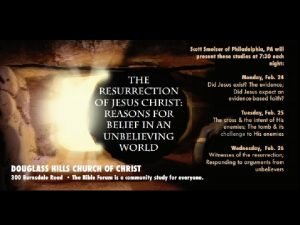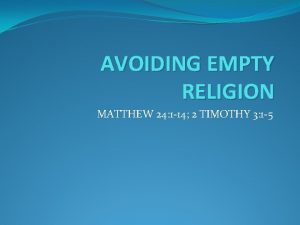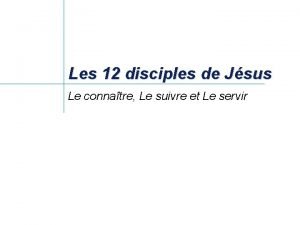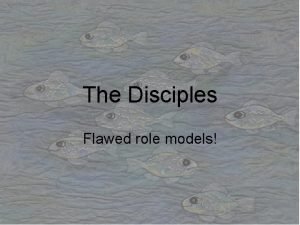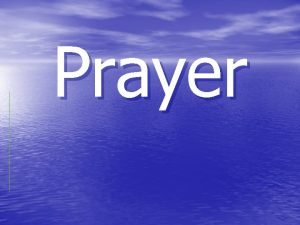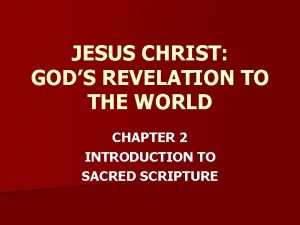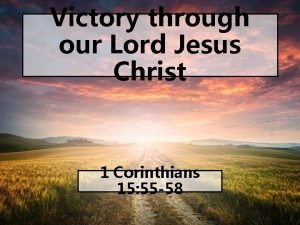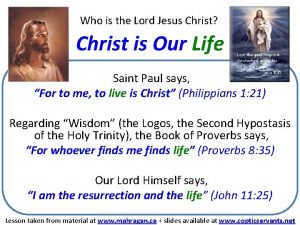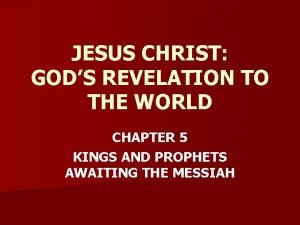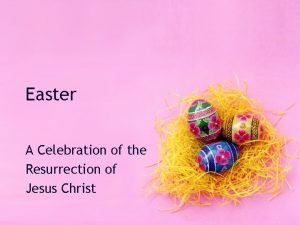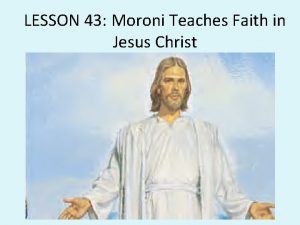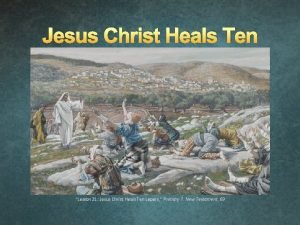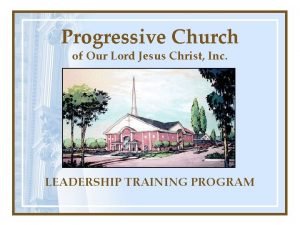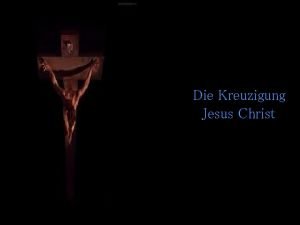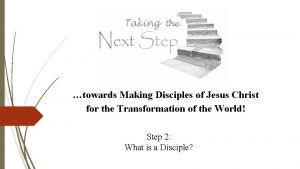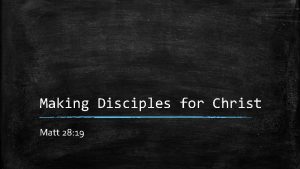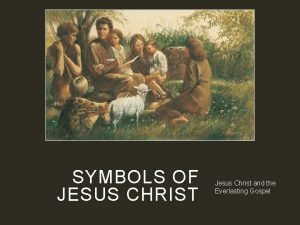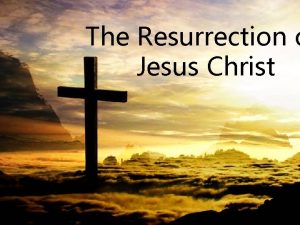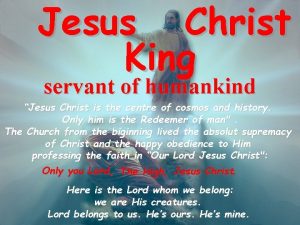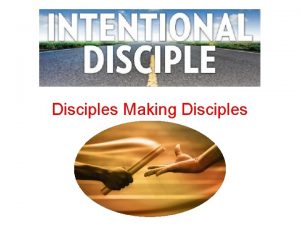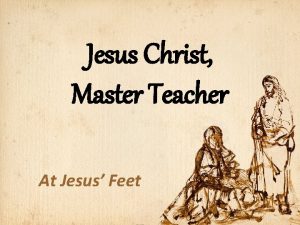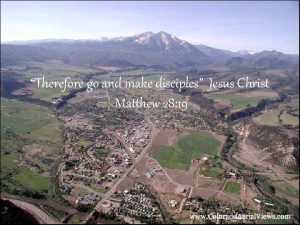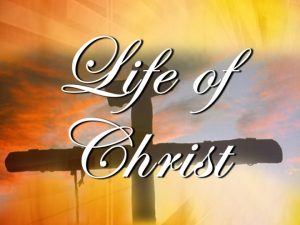towards Making Disciples of Jesus Christ for the


















- Slides: 18

…towards Making Disciples of Jesus Christ for the Transformation of the World! Developing an Intentional Discipleship Plan Step 1

“I am not afraid that the people called Methodists should ever cease to exist either in Europe or America. But I am afraid, lest they should only exist as a dead sect, having the form of religion without the power. And this undoubtedly will be the case, unless they hold fast both the doctrine, spirit, and discipline with which they first set out. – JOHN WESLEY, FROM ‘THOUGHTS UPON METHODISM’” Has that moment arrived in some parts of the world? Have we lost our focus on a holiness of heart and life which transforms individuals and communities?

“What does our church DO? ” Pause the video and take some time and together discuss your answer to the question, “What does your church do? ” Restart the video when you feel you have a comprehensively answered the question. WE MAKE DISCIPLES!!!! How do you see that happening in your church? How does your church’s mission statement align with the mission of making disciples?

“When I say Why, I don’t mean to make money – that’s a result. By Why I mean what is your purpose, cause or belief? Why does your company exist? Why do you get out of bed every morning? And Why should anyone care? ” Simon Sinek, Start with Why. Portfolio/Penguin Books; © 2009

Discuss in your group: Why are you attending the church that you currently attend? What brought you there? (Restart video when everyone has shared)

Why are you attending the church that you currently attend? What brought you there? A recent study revealed these answers to these questions: Less than 5% will say they found this church on their own. 5 -10% will say they were invited by a member of the church. 80% or more will say they were “born” Methodist and have always simply attended the United Methodist Church where they live. And a large portion of this group(60 – 70 %) would say they have always been in this church; their parents or their grandparents came to this church and thus, so do they.

“The problem becomes, the longer we have been in one place, the greater the likelihood that we have forgotten why. . . “ As we seek to bring clarity to what a disciple is – how disciples are formed – the most important thing that we can do as followers of Jesus is to reconnect with our Why. ”

For Personal Reflection: 1. Why am I here (in this church)? 2. What brought me here? 3. Why do I stay? What keeps me here? 4. Why is this place important to me?

Pause the video with the questions below. Take some time apart(15 – 20 minutes) from your group to write down your responses in a journal or other pieces(s) of paper. Answer these questions for yourself. Regather in groups of 2 or 3 to share your answers. (10 min. ) Then, regather as a full group and briefly share interesting insights from your small group conversations When you are done, restart the video 1. Why am I here (in this church)? 2. What brought me here? 3. Why do I stay? What keeps me here? 4. Why is this place important to me?

“And at the same time that we are justified, yes, in that very moment, sanctification begins. In that instant we are "born again, " "born from above, " "born of the Spirit. " There is a real, as well as relative, change. We are inwardly renewed by the power of God. We feel the "love of God shed abroad in our heart by the Holy Ghost which is given unto us, " producing love to all humankind, and more especially to the children of God, expelling the love of the world, the love of pleasure, of ease, of honor, of money; together with pride, anger, self-will, and every other evil disposition – in a word, a changing the "earthly, sensual, devilish" mind into "the mind which was in Christ Jesus. " – JOHN WESLEY, SERMON “THE SCRIPTURE WAY OF SALVATION”

“What we learn from the preaching of John Wesley and the early Methodist movement is everything they said and did emanated from a deep sense of Why. Such preaching and teaching deeply rooted in the Why generates joy and purpose and hunger for all the things we get to do as a body of Christ (small groups, engaging our community, evangelism, stewardship, etc. ). People moved by Wesley and the early Methodists from a deep sense of Why, began to ask: How do I grow in this new faith? How can I use my gifts? How can I give? How can I serve others? Can I invite a friend? ”

1. Why do we make disciples? 2. Why do we share our faith? 3. What do we have that others might need?

Pause the video on this page. Take at least 10 minutes to discuss these questions. If desired, break up into groups of 3 to discuss, then share as a large group. When you are done, please restart the video 1. Why do we make disciples? 2. Why do we share our faith? 3. What do we have that others might need?

Brainstorming as group - what things can you do in your local church to help folks rediscover their why? List on newsprint.

Reflect and revisit the question we asked earlier with your leadership team: “What do we do? ” Let them write down their answers on newsprint or chalk or white board as you did. Keep in mind the difference between church activities and discipleship making – and how the two can be brought into alignment. Bring those ideas, and any other feedback you might have, with you as you watch the next training video for Step 2.

When your leadership group has completed the ‘What do we do’ exercise, remind them of our mission: Making Disciples of Jesus Christ for the Transformation of the World! This is what we do! Then ask, how much of what we do in the church reflects our overall mission? What would need to change in your church to move it from a church that does things to a church that makes disciples?


Thank you for…. …towards Making Disciples of Jesus Christ for the Transformation of the World! Training # 2, Characteristics of a Disciple, is available on the Northern Flow District Website.
 Jesus called his disciples friends
Jesus called his disciples friends Isaac cross
Isaac cross Jesus talking to his disciples
Jesus talking to his disciples 12 disciples de jesus
12 disciples de jesus Occupation of jesus disciples
Occupation of jesus disciples Matthew 6 14 15 kjv
Matthew 6 14 15 kjv Jesus jesus jesus sweetest name i know
Jesus jesus jesus sweetest name i know Jesus in the morning
Jesus in the morning Jesus christ god's revelation to the world
Jesus christ god's revelation to the world Victory through jesus
Victory through jesus Slave of jesus christ
Slave of jesus christ The book of mormon another testament of jesus christ
The book of mormon another testament of jesus christ Who is jesus
Who is jesus Jesus christ god's revelation to the world chapter 5
Jesus christ god's revelation to the world chapter 5 Thursday before easter
Thursday before easter Exercise faith in jesus christ video
Exercise faith in jesus christ video Jesus heals the leper clipart
Jesus heals the leper clipart Progressive church of our lord jesus christ
Progressive church of our lord jesus christ Jesus christ: god's revelation to the world
Jesus christ: god's revelation to the world

